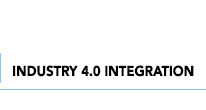Fictron Industrial Supplies Sdn Bhd
No. 7 & 7A,
Jalan Tiara, Tiara Square,
Taman Perindustrian Sime UEP,
47600 Subang Jaya,
Selangor, Malaysia.
No. 7 & 7A,
Jalan Tiara, Tiara Square,
Taman Perindustrian Sime UEP,
47600 Subang Jaya,
Selangor, Malaysia.
+603-8023 9829
+603-8023 7089
Fictron Industrial
Automation Pte Ltd
140 Paya Lebar Road, #03-01,
AZ @ Paya Lebar 409015,
Singapore.
+65 31388976
sg.sales@fictron.com
Automation Pte Ltd
140 Paya Lebar Road, #03-01,
AZ @ Paya Lebar 409015,
Singapore.
+65 31388976
sg.sales@fictron.com
Why U.S.-China Trade War Risks Hurting Firms in Both Countries
21 Jun 2019


View Full Size
U.S. businesses are imploring President Donald Trump not to extend his tariffs to $300 billion in goods from China that have so far been spared in his trade war with Beijing.
These companies advise that the additional tariffs would drive up prices for consumers, squeeze profits and leave U.S. companies at a competitive shortcoming to foreign rivals that typically are not subject to higher taxes on the components they buy from China.
And in a sign that commercial combat between the world's two leading economies is damaging business on either side of the Pacific, the Chinese telecommunications giant Huawei warned that the hostilities with the Trump administration will decrease its expected revenue by $30 billion over the next two years.
Huawei is at the heart of the trade war that Beijing is engaged in with the Trump administration, which has accused Chinese companies like Huawei of committing forced technology transfers from American companies and stealing their trade secrets. Last month, the U.S. placed Huawei on its 'Entity List,' which effectively bars American companies from selling components to Huawei without government approval.
For the time being, American businesses, trade groups and individuals are pleading with the administration to lower its threat to tax the remaining Chinese imports that Trump hasn't already hit with tariffs — or at a minimum spare the particular imports that they and their customers rely on. Some are appearing in person to air their grievances in seven days of hearings in Washington that started Monday.
A typical theme in their pleas is that American businesses — not China, as Trump often asserts — must pay the import taxes the president is imposing on Chinese goods. And in the end, many of these companies will pass their higher costs on to their customers.
Trump has already imposed 25% tariffs on $250 billion in Chinese imports. The goal is to drive Beijing to stop stealing American technology, compelling U.S. businesses to hand over trade secrets and unfairly subsidizing Chinese tech companies.
Eleven rounds of negotiations failed to end the argument over China's aggressive drive to outperform America's technological dominance. Businesses and investors say they hope the negotiations will gain momentum if Trump and President Xi Jinping hold a face-to-face meeting at a Group of 20 summit in Osaka, Japan end of June 2019.
'Most businesses are almost praying for a solution,' said Patrik Berglund, who tracks global trade as the CEO of Xeneta, an Oslo, Norway ,firm that provides data on the shipping industry. 'These things will have enormous consequences. We're so connected in this global world.'
This week, U.S. Trade Representative Robert Lighthizer is sure to see more complaints when he goes to Capitol Hill. Lighthizer is to attest Tuesday to the Senate Finance Committee and Wednesday to the House Ways and Means Committee. Lawmakers from both political parties have already been extremely prepared to speak out against Trump's aggressive use of tariffs.
They were mainly concerned last month when Trump without warning threatened to impose crippling tariffs on Mexico in a push to stop the flow of Central American migrants into the United States. Trump dropped the tariff threat after Mexico agreed to do more to block the migrants.
But the fight with China keeps going. And Chinese companies are actually being suffered. Huawei's founder and CEO, Ren Zhengfei, compared his company to a 'badly damaged plane' because of the U.S. actions against it.
Ren said Huawei wil dramatically reduce capacity and expects revenue of about $100 billion yearly for the next two years, compared with $105 billion in 2018. In February, he had said the company was targeting $125 billion in 2019. Huawei's overseas cellphone sales will decline by 40%, Ren predicted.
The Trump administration claims that Huawei poses a national security threat on the grounds that it is beholden to China's ruling Communist Party. But American officials have presented no evidence of any Huawei equipment serving as intentional conduits for espionage by Beijing. Huawei's placement on the Entity List is widely seen as intended to persuade resistant U.S. allies in Europe to exclude Huawei equipment from their next-generation wireless networks, known as 5G.
The action against Huawei designated an escalation in a yearlong conflict with China. Trump's previous tariffs typically spared American consumers by focusing on industrial goods that don't show up directly in the mall or big-box stores. But the new round would impose financial pain on ordinary households because it will affect many consumer goods, from cellphones and computers to shoes and silk scarves. 'There's certainly a lot of business pressure to resolve the China trade wars,' said Amanda DeBusk, chair of the international trade practice at the law firm Dechert and a former U.S. Commerce Department official.
She added: 'The president looks at all of this as a negotiation. As we have seen, sometimes these things have a way of working themselves out as they did with his tariffs on Mexico.'
If Trump does expand his tariffs to all remaining goods from China, though, it could prove overpriced. A report commissioned by the National Retail Federation uncovered that American consumers would pay an additional $4.4 billion a year for clothing, $2.5 billion more for shoes and $1.6 billion more for household appliances.
More generally, economists say the tariffs could weaken a U.S. economy that appears to be on shakier footing. Mark Zandi, chief economist at Moody's Analytics, said the increasing import taxes would leave the United States with 900,000 fewer jobs than it would have had otherwise. 'The U.S. economy will be flirting with recession later this year and early next,' Zandi said.
Jeffrey Pratt, leader of the supply chain practice at the accounting and consulting firm BDO, called the looming tariffs 'a bit of gamechanger' for his clients. Many can't afford to absorb the taxes themselves and would pass along the higher costs to their customers.
Atlas PyroVision Entertainment in Jaffrey, New Hampshire, relies on China for 90% of the fireworks it sells.
'Simply imposing a 25% tariff will subsequently cause substantial harm to our family business,' CEO Stephen Pelkey noted in a filing with the U.S. Trade Representative. 'We would be forced to pass along the increase directly to our customers.'
Noting that community nonprofits often use the fireworks for Independence Day celebrations, Pelkey wrote: 'In most cases, a 25% hike in price will force their skies to go dark on the 4th of July.'
Bracing for the new tariffs, Yedi Houseware, a Los Angeles family business, has postponed plans to hire and move into a bigger warehouse. Bobby Djavaheri, a company executive, echoed a common complaint: The administration is taxing products — in his case, things like air fryers — that aren't made by American companies. They must be imported. So no U.S. producer benefits from the tariffs; U.S. importers just get socked with a tax. 'It's really dumbfounding,' he said.
This article is originally posted on tronserve.com























